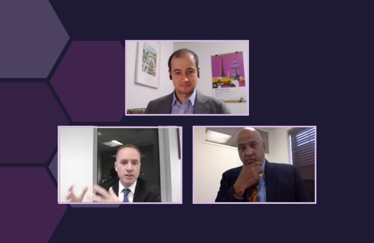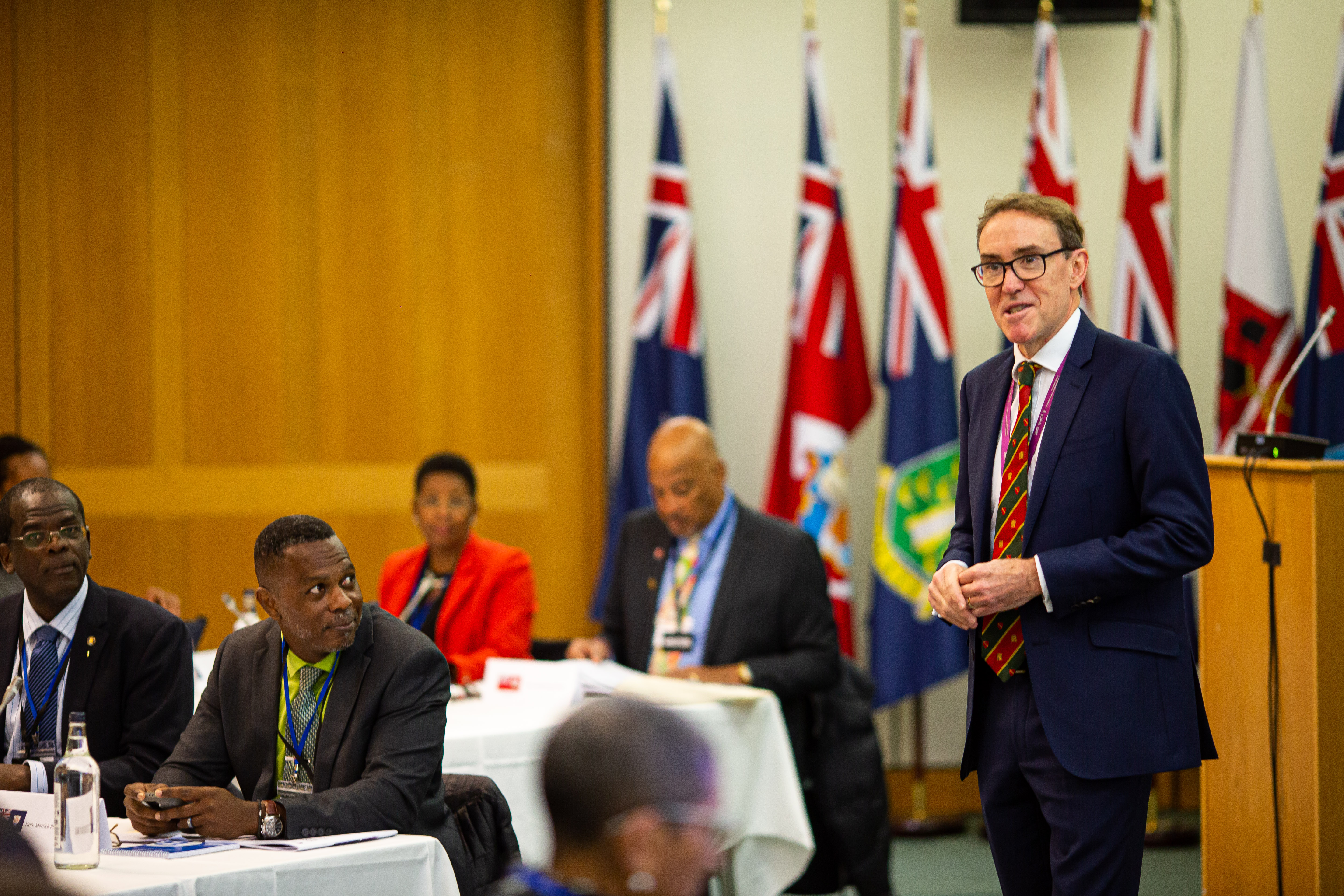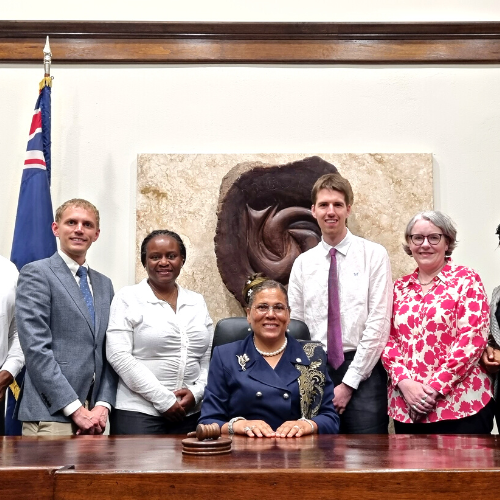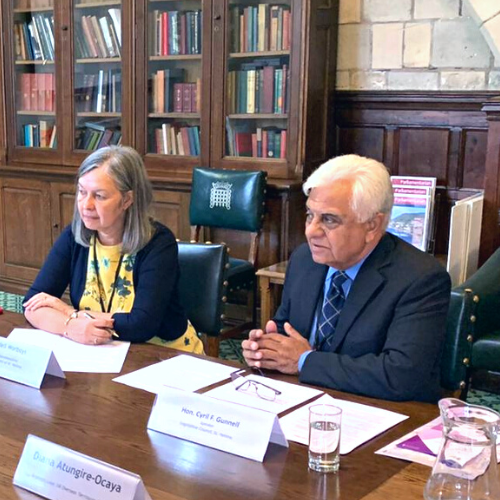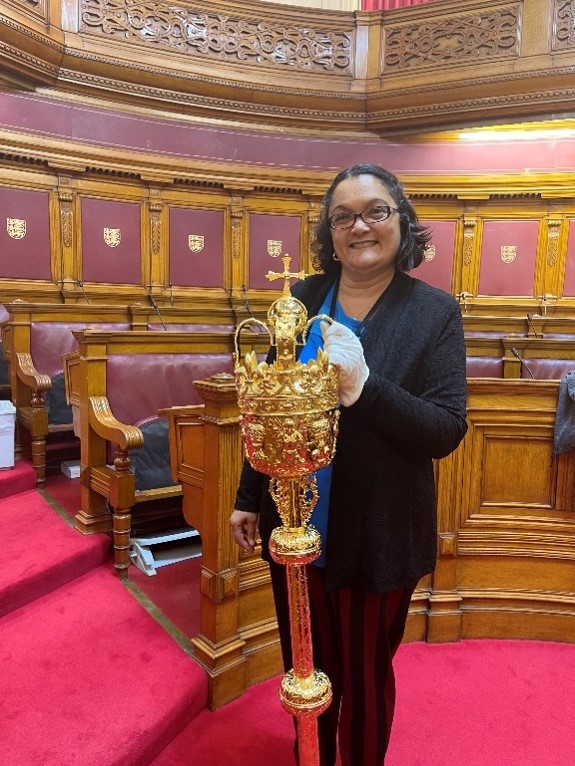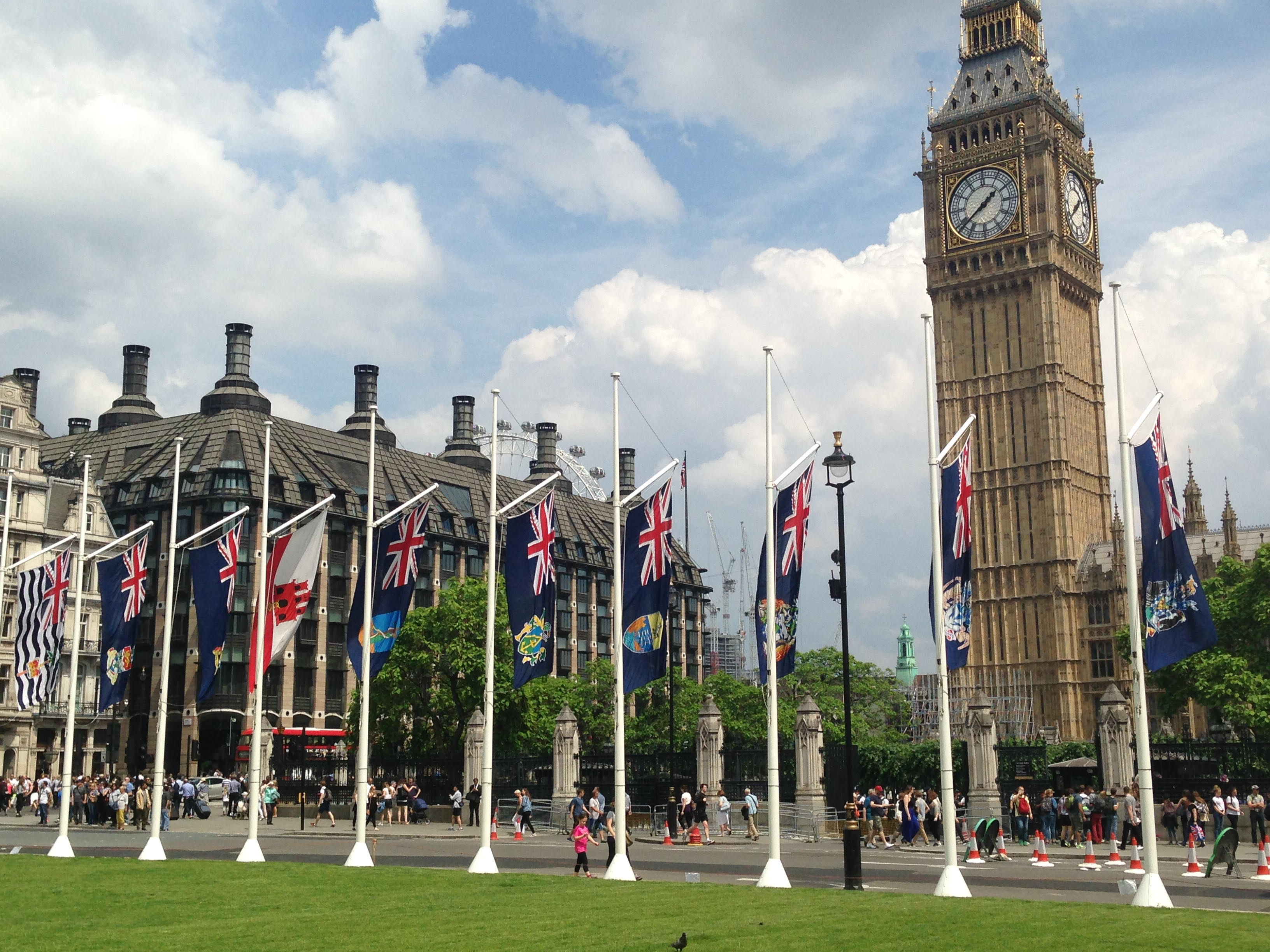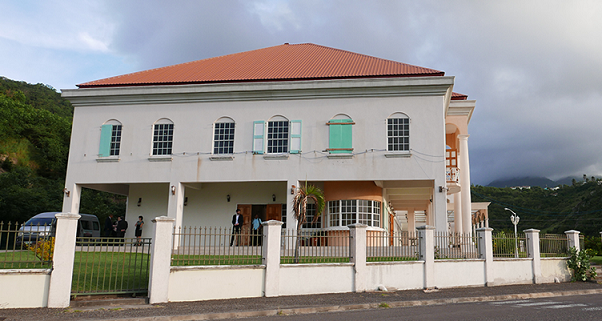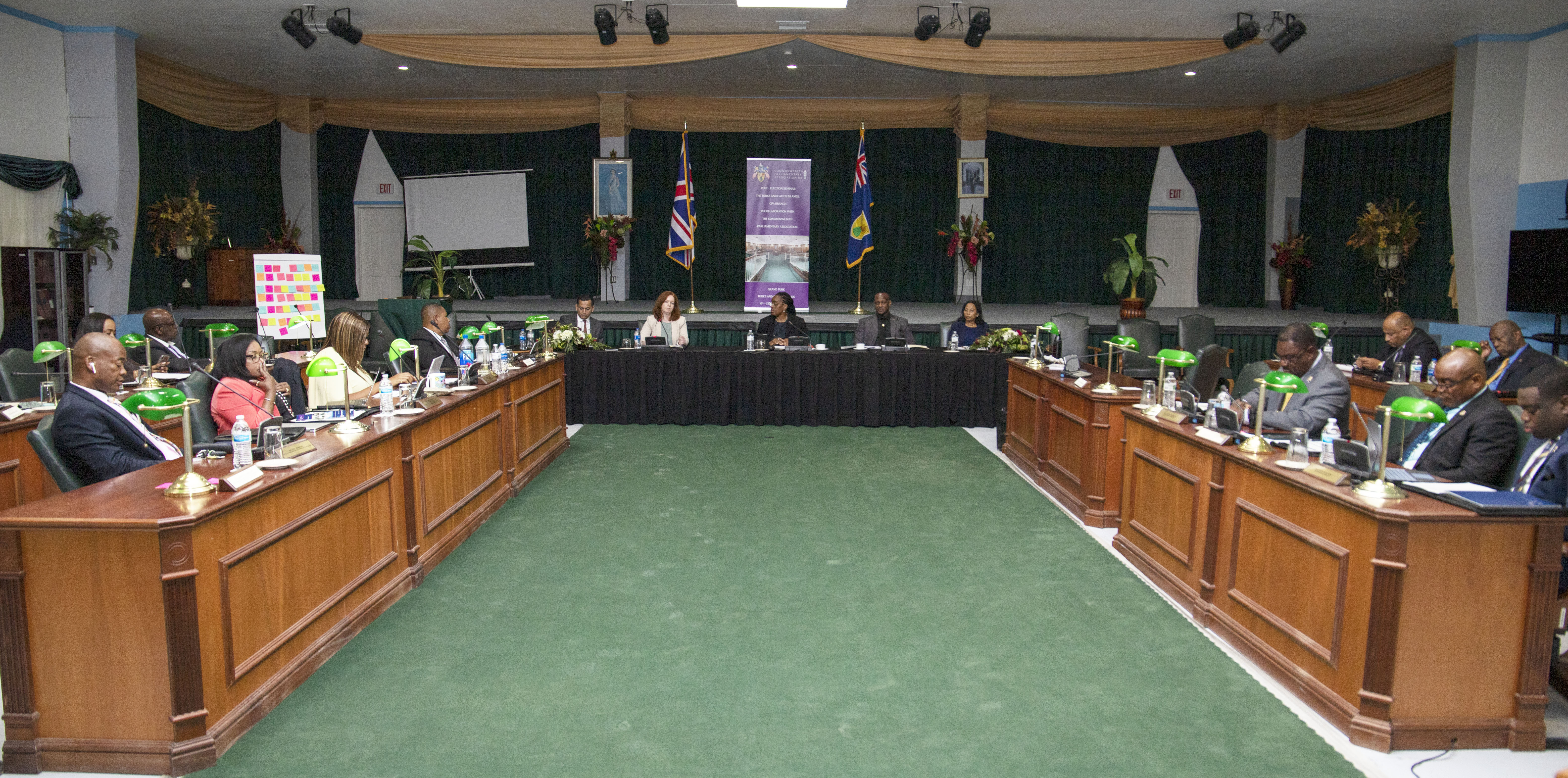Forum Brings Together Key Stakeholders Across UK Overseas Territories to Strengthen Financial Oversight & Good Governance
Published 02 December 2021
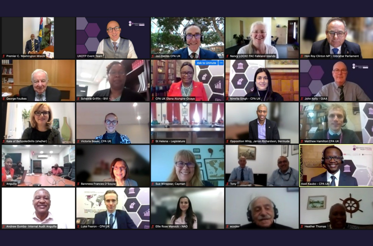
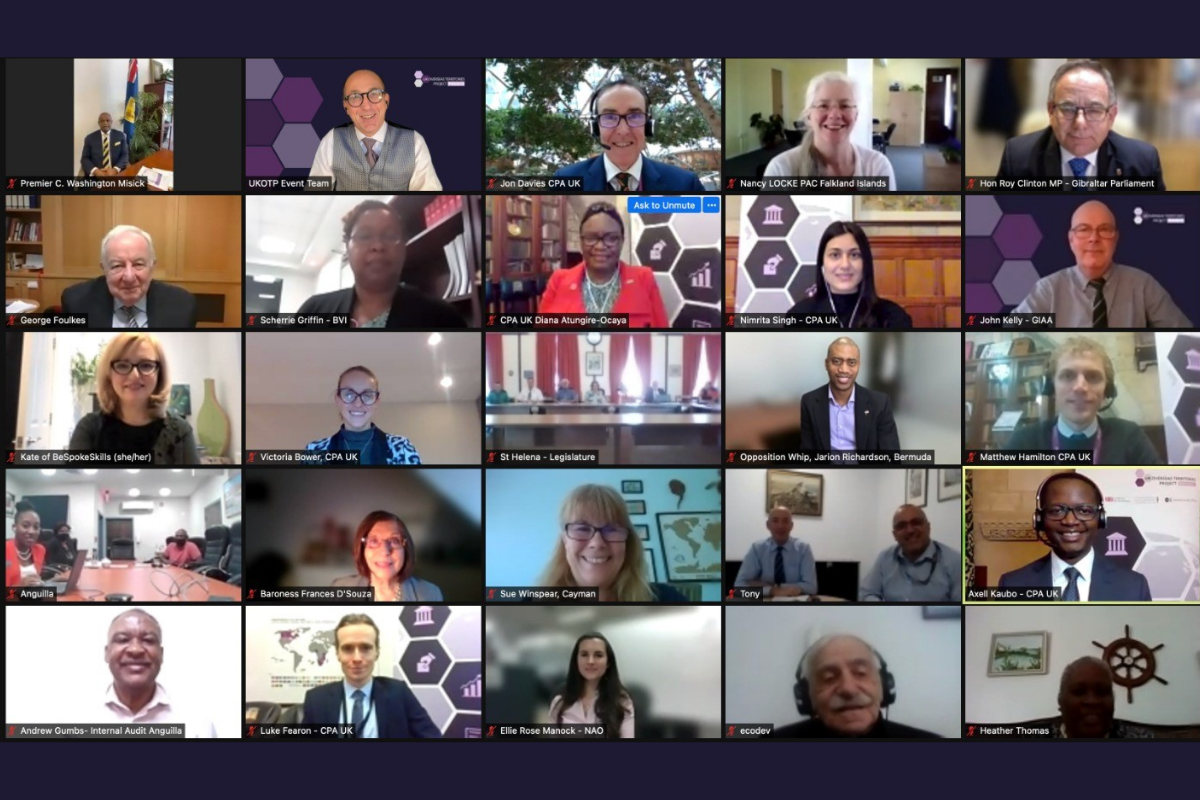 Key actors from the UK and the Overseas Territories (OTs) met virtually from Tuesday, 30 November to Thursday, 2 December for the 4th Overseas Territories Forum on Oversight of Public Finances and Good Governance.
Key actors from the UK and the Overseas Territories (OTs) met virtually from Tuesday, 30 November to Thursday, 2 December for the 4th Overseas Territories Forum on Oversight of Public Finances and Good Governance.
This was the fourth programme of its kind, designed to bring together key stakeholders from across the Overseas Territories, including Speakers, Members, and Clerks from Legislatures, as well as Internal and External Auditors and Electoral Officials, to explore issues relating to good governance and oversight of public finances. Participating territories included Anguilla, Ascension, Bermuda, The British Virgin Islands, The Cayman Islands, The Falkland Islands, Gibraltar, Montserrat, Pitcairn, St Helena, Tristan da Cunha and The Turks and Caicos Islands.
Delivered against the backdrop of the global pandemic, the virtual forum provided a platform for delegates to identify ways to strengthen financial oversight and good governance across the Overseas Territories. It also explored how delegates can collaborate with their counterparts on Pandemic Recovery, Scrutiny and Communicating with Impact.
Day 1 - Adapting to Change: Resilience & Recovery
"One of the striking things about this group of people is the sense of community that we have built up, across the various strands of this Project's work… this community is a real strength." - Jon Davies, Chief Executive, CPA UK
The Forum began with opening remarks by Lord George Foulkes, Chair of the UKOTP Board, and Hon. Charles Washington Misick, Premier of the Turks and Caicos Islands, both highlighting the ongoing benefits of cooperation between the UK and the Overseas Territories. This was followed by a speech by Baroness D’Souza, who spoke to the ongoing impact of the pandemic and technology on the democratic process.
"Democracy can innovate very rapidly when it needs to." - Dr Hannah White, Deputy Director, Institute for Government
The theme of day one of the Forum was Adapting to Change. The first session of the day discussed the benefits and challenges of the transition to hybrid parliaments, whether in delivering elections or engaging with the public. The next session focussed on the economic impact of COVID-19 on public finances. One of the key points raised in the session was that the economic impact is not uniform. For example, in Bermuda the tourist and shipping industries have been greatly affected, resulting in new solutions such as government grants for businesses, and free e-learning for tourism workers.
Day 2 - Scrutiny: Oversight & Accountability
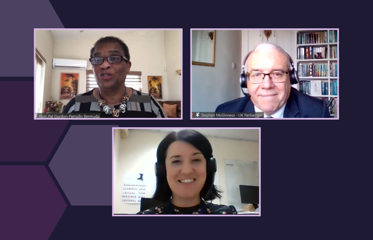 “Climate change is an incredibly important area of policy that the Overseas Territories do need to give greater attention to as vulnerable Small Islands and low-lying coastal communities.
“Climate change is an incredibly important area of policy that the Overseas Territories do need to give greater attention to as vulnerable Small Islands and low-lying coastal communities.
...Parliamentarians need support in understanding the complexities of the issue so that they can effectively perform an accountability function.” - Mr Benito Wheatley, Special Envoy of the British Virgin Islands (BVI) Government.
The theme of day two was scrutiny, and the first session discussed the response of governments to climate change and how to hold them to account on their commitments. The panellists spoke to the critical role audit offices can play in examining policy and supporting committees, as well as concerns about the absence of publicly available information regarding the climate impact of investments.
The second session explored more broadly the importance of parliamentary scrutiny. Delegates were reminded that scrutiny is critical for the delivery of quality public services. The panellists also discussed the challenge of resourcing committees in smaller jurisdictions, and how clerks can act as the long-term ‘institutional memory of a committee.
The third session of the day identified effective techniques for committee questioning. Two key points that arose from the conversation were the importance of preparation and research for an inquiry, and how appropriate tone can best encourage contributions from witnesses.
The day closed with a discussion on the updated Good Practice Guide, which can be downloaded here.
Day 3 - From Purpose to Creating Impact: Leadership, Community Outreach & Engagement
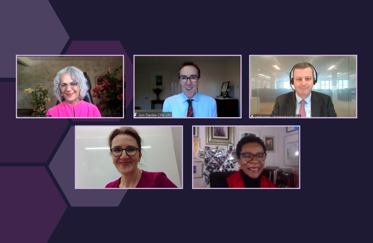 "If you want people to change, you have to persuade them through communication that change is in their interest." - Kate Faragher, BeSpokeSkills
"If you want people to change, you have to persuade them through communication that change is in their interest." - Kate Faragher, BeSpokeSkills
The final theme of the Forum was From Purpose to Creating Impact, and the day began with a roundtable event on leadership skills. The panel highlighted the importance of harnessing the talents of team members and that good ideas can come from any level of an organisation. Leadership failures and mistakes create the best learning experiences, while success can be measured in the confidence a team feels in approaching their leaders with questions.
The following session examined democratic governance through the lens of civil society engagement, and how civil society can provide an oversight role to policy while identifying the needs of citizens. The panel also spoke about the role of media, noting the growing polarisation of the public and how a solution may lie in greater education on fact-checking and understanding sources.
The final session of the Forum was an interactive workshop on improving communication skills. Delegates were informed about the challenge of ‘status quo bias’, the idea that it is easier for people to stay the same because change can be costly to one's reputation and stability.
The Overseas Territories Forum was a continuation of the work of the UK Overseas Territories Project (UKOTP) supporting good governance and oversight of public finances in the UK Overseas Territories, delivered by CPA UK in partnership with the National Audit Office and Government Internal Audit Agency.
